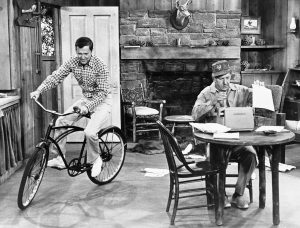A TV Pioneer
- The Odd Couple star Jack Klugman, a 1950s TV pioneer, died 9 years ago today. The two-time oral cancer survivor passed away at his Woodland Hills, Calif. home, with loved ones by his side.
- Klugman passed away after a battle with prostate cancer. Smoking increases the chance of death due to prostate cancer.
- Another leading cause of cancer is human papillomavirus, or HPV, which can cause anal, oral, and penile cancers.
He passed away following a fight with prostate cancer, according to his death certificate.
Read MoreKlugman’s First Big Break
It was The Odd Couple creator and executive producer Garry Marshall who fought for Klugman to play the role of Oscar opposite Tony Randall’s Felix in the 1970 TV show. (Marshall also brought us TV classics such as Happy Days and Laverne and Shirley.)
When asked by Klugman why he fought for him, Marshall said he had caught his eye playing “Herbie” in Gypsy on Broadway. "You did a scene with Ethel Merman and I was impressed because as she was singing to you, she was spitting a lot and it was getting on your clothes and your face and in your eyes. You never even flinched,” Marshall said. “I said to myself, 'Now that's a good actor.'" In 1960, Klugman received a Tony nomination for his memorable Broadway performance, and a Golden Globe in 1973 for The Odd Couple.
Klugman’s Bad Habits
Although Klugman led one extraordinary life, he suffered from the repercussions of his bad habits. A hefty cigar and cigarette smoker, Klugman was diagnosed with oral cancerspecifically cancer of the larynxin 1974. He underwent surgery and treatment, and luckily was able to continue his acting career.
Unfortunately, Klugman chose to also continue smoking, and the cancer did indeed came back. In 1989, Krugman underwent surgery again to have the cancer removed, and unfortunately, his surgeon also had to remove his right vocal cord. Tragically, he then lost his ability to speak.
He eventually trained himself to get some of his voice back after going public with his story nearly two years later. He worked with a voice specialist to strengthen his left vocal cord so that it could produce a sound. Klugman made a triumphant return to acting in 1991 performing in a one-night benefit performance of The Odd Couple on Broadway.
Klugmanwho always had a cigarette in his mouthadmittedly first began smoking because he was trying to look cool. "I saw [actor] John Garfield smoke. He was my idol, so I smoked,” he once said. ” I even smoked like him."
Despite Klugman’s love of smoking, he did help to make a difference and raise public awareness about the dangers of smoking. In 2004, Klugman helped the Oral Cancer Foundation produce its first Public Service Announcement for broadcast on national TV, a very big deal at the time.
The entertainer did his last on-screen role in the horror film Camera Obscura in 2012, and his last stage role was in Twelve Angry Men, which opened on March 13, 2012 at the George Street Playhouse.
Smoking and Prostate Cancer
It is unclear whether Klugman’s prostate cancer was related to his prior cancer history, but there is also a correlation between smoking and prostate cancer.
Dr. Stephen Freedland, a urologist at Cedars-Sinai Medical Center, explained in a previous interview with SurvivorNet, the lifestyle advice he gives to prostate cancer patients.
“Some of the best data we have is that obesity increases the risk of, not just getting prostate cancer, but actually dying from prostate cancer. So, that’s one of the key things we do try and focus on is weight loss,” he said. “Other things would certainly be, get more exercise. Something we don’t hear a lot about but is actually correlated with dying of prostate cancer is actually smoking. We know it's bad for your lung cancer and many cancers, but it actually correlates with dying from prostate cancer.”
Some doctors don’t like to make patients feel guilty about smoking
Another Leading Cause of Oral Cancer
Most people know the harm of smoking and, like Klugman, choose to do it anyway. However, more than 70 percent of Americans don’t know about another leading cause of cancer: human papillomavirus, or HPV, can cause anal, oral, and penile cancers.
HPV is a highly common sexually transmitted virus. About 80 percent of people who are sexually active end up infected with HPV at some point in their lives. Most of the time, the body's immune system naturally clears the HPV and the person never experiences health problems or symptoms. But in some cases, if someone has contracted one of the "high-risk" strains of HPV (there are about 14 'high-risk' strains out of roughly 100 strains total), the infection might linger over a long period of time, ultimately damaging cell DNA and resulting in cancer-causing mutations.
Related: Having Oral Sex With Multiple Partners Can Increase Risk for Throat Cancer, Says New Study
The U.S. Centers for Disease Control and Prevention (CDC) recommends that all children ages 9 to 14 (both male and female) get two shots of the HPV vaccine six to 12 months apart.
Because HPV is usually transmitted during sex, the early age recommendation is meant to ensure the virus is prevented before children are sexually active. HPV is primarily spread by sexual contact, and the cancers it causes are often in intimate parts of the body. The CDC did recently expand these guidelines, though; now, adults ages 27-45 can get the HPV vaccine, too, if their doctors agree.
RELATED: HPV and Cancer Risk: The Basics
"We recommend strongly that children are vaccinated against HPV before they are sexually active." Dr. Jessica Geiger, a medical oncologist at Cleveland Clinic Cancer Center, told SurvivorNet in a previous conversation about HPV prevention.
About 80 percent of people who are sexually active end up infected with HPV at some point in their lives. Most of the time, the body's immune system naturally clears the HPV on its own and the person never experiences health problems or symptoms. But in some cases, if someone has contracted one of the "high-risk" strains of HPV (there are about 14 'high-risk' strains out of roughly 100 strains total), the infection might linger over a long period of time, ultimately damaging cell DNA and resulting in cancer-causing mutations.
More than 70% of Americans Don't Know that HPV Can Cause Anal, Oral, and Penile Cancers
Bottom line, along with avoiding smoking to prevent cancer risk, it is also highly important to practice safe sex and educate your children on this harmful virus and determine with your own doctor what age is appropriate to vaccinate your kids.
Learn more about SurvivorNet's rigorous medical review process.


